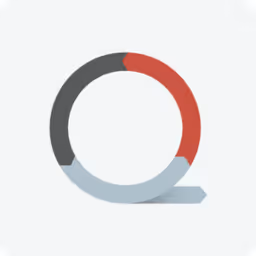Switching media agencies is a significant decision that can impact the trajectory of your marketing efforts. Whether you're seeking better results, improved communication, or a fresh perspective, asking the right questions can help you identify the ideal partner for your brand.
Here are seven critical questions to guide your decision-making, including insights on agency size, expertise, and their unique differentiators.
1. Is the Agency Aligned with Your Business Goals?
Success begins with alignment. Your new agency should clearly understand and support your unique goals. Consider:
- What are your top marketing priorities? Are you focused on scaling growth, improving ROI, or testing new channels?
- Does the agency understand and align with these goals? Look for agencies that tailor strategies to your needs rather than offering cookie-cutter solutions.
Red Flags: Agencies that focus more on selling services than understanding your objectives.
2. Does the Agency Have Expertise in Your Industry?
Every industry has nuances that require specialized knowledge. An agency with experience in your vertical can offer more effective strategies and faster results. Ask:
- What industries do they specialize in?
- Can they share case studies or examples of work with brands like yours?
Agencies with deep expertise in your field will be familiar with your audience, competitive landscape, and effective channels.
Red Flags: Agencies that struggle to provide relevant examples or have no experience with your target market.
3. Should You Choose a Full-Service or Boutique Agency?
One of the key decisions when switching agencies is deciding between a full-service or boutique firm. Both have their advantages:
Full-Service Agencies
- Advantages: Offer comprehensive services under one roof, including media buying, creative, and analytics. They provide centralized communication and consistency.
- Best For: Brands seeking an all-encompassing solution or those with complex, multi-channel campaigns.
Boutique Agencies
- Advantages: Focused expertise in a specific area, personalized service, and greater agility.
- Best For: Brands with in-house capabilities or those needing specialized support for a particular challenge.
Pro Tip: Evaluate your internal team’s strengths. If you have strong creative or analytics resources, a boutique agency specializing in media buying may be the best complement.
4. How Do They Measure and Report Success?
Transparency and accountability are essential for any agency relationship. To ensure you’re aligned on what success looks like, ask:
- What KPIs do they prioritize? Whether it’s ROAS, CAC, or lifetime value, the metrics should match your business goals.
- How often will they report results? Regular updates with actionable insights are a must.
Red Flags: Agencies that focus on vanity metrics (e.g., impressions) without tying them to actual business outcomes.

5. What Is Their Approach to Communication and Collaboration?
Clear communication is vital for a strong agency partnership. Ask:
- How often will we meet or receive updates? Weekly or bi-weekly check-ins help maintain alignment.
- Who will be your main point of contact? Ensure you’ll have access to experienced strategists, not just junior account managers.
- How do they incorporate feedback? Collaborative agencies are more likely to adjust strategies to meet your needs.
Red Flags: Unclear processes for feedback or limited access to senior team members.
6. Are Their Pricing and Services Transparent?
Pricing clarity is essential to avoid misunderstandings. Make sure you understand the value of what you’re paying for. Ask:
- What’s included in their pricing model? Clarify whether creative development, analytics, or ad spend management is part of their fees.
- Are there additional costs? Hidden fees for tools, platform access, or added services can quickly inflate budgets.
Red Flags: Agencies reluctant to provide detailed pricing breakdowns or contracts.
7. What Sets This Agency Apart?
Every agency claims to be the best—but what truly differentiates them? Understanding their unique value proposition can help you assess if they’re the right fit. Ask:
- What technology or tools do they use? Agencies with proprietary tools or advanced platforms can provide a competitive advantage.
- What is their unique process or approach? Look for innovative methodologies, creative strategies, or data-driven frameworks that stand out.
- What results make them proud? A great agency can clearly articulate why they’re different and how it benefits clients.
Pro Tip: If the agency specializes in something like advanced attribution modeling, creative optimization tools, or niche platform expertise, ensure that aligns with your priorities.
Red Flags: Agencies that cannot articulate their differentiators or rely solely on basic services without innovation.
Final Thoughts: Choosing the Right Agency Fit
Switching agencies isn’t just about finding a new partner—it’s about finding the right partner. The ideal agency will align with your goals, specialize in your industry, offer transparent pricing, and differentiate themselves with unique tools, processes, or expertise. By asking these seven critical questions, you’ll be better equipped to make an informed decision that positions your brand for long-term success.





